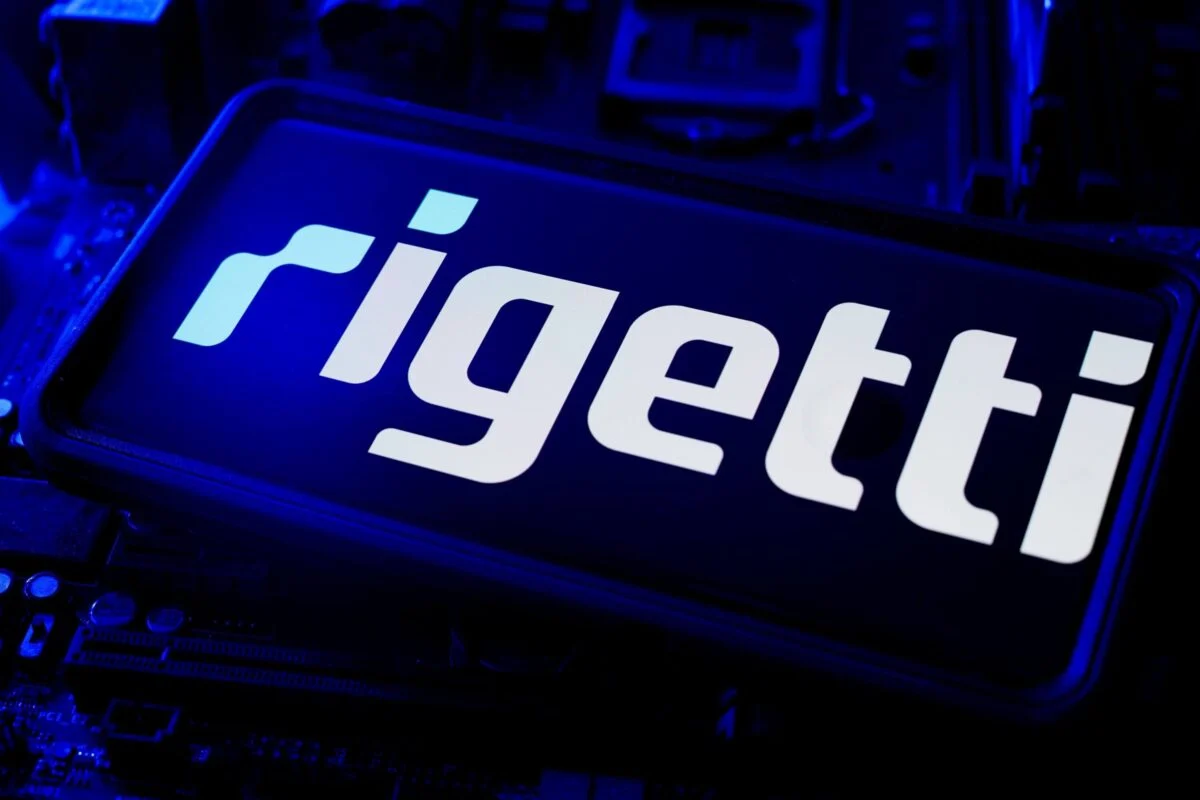TLDR
- Rigetti Computing stock jumped 16.4% after The Wall Street Journal reported the Trump administration was in talks to take equity stakes in quantum computing companies
- The stock later retreated to up just 6.5% after Reuters and Yahoo Finance could not confirm the report
- A U.S. Commerce Department official told Reuters the department is “not currently negotiating with any of the companies”
- The WSJ reported companies including Rigetti were discussing minimum funding awards of $10 million each from the Commerce Department
- A Rigetti spokeswoman said the company is continuously engaging with the government on funding opportunities
Rigetti Computing stock experienced wild swings on Thursday following conflicting reports about potential federal funding arrangements. The quantum computing company’s shares initially soared 16.4% before pulling back to a 6.5% gain as of 1:51 p.m. ET.
The Wall Street Journal kicked things off by reporting that the Trump administration was in talks with several quantum computing companies about taking equity stakes. According to the report, companies including Rigetti, IonQ, D-Wave Quantum, Quantum Computing, and Atom Computing were discussing arrangements where the government would become a shareholder in exchange for federal funding.
PRESIDENT TRUMP’S COMPLETE ROADMAP FOR QUANTUM
Quantum Computers & Cloud Services
• $IONQ
• $RGTI
• $IBM
• $GOOGL
• $QUBT
• $QBTS
• $HONData Storage & Management
• $QMCO
• $WIMIQuantum Chip Solutions
• $INTC
• $HOLOQuantum Security/Encryption
• $LAES
• $ARQQ pic.twitter.com/LelXmrx11o— Shay Boloor (@StockSavvyShay) October 23, 2025
The funding would come from the Chips Research and Development Office. Companies were reportedly discussing minimum funding awards of $10 million each.
Deputy Commerce Secretary Paul Dabbar was named as the person leading these funding discussions. Dabbar previously worked as a quantum computing executive and served as an Energy Department official.
The proposed arrangement would follow a similar pattern established with other companies. In August, the government took a nearly 10% stake in Intel by converting almost $9 billion in grants to equity.
Other quantum companies also saw their stocks rise early in trading. D-Wave was up 20% while IonQ and Quantum Computing each gained over 10%.
The Contradiction
Things took a turn when Reuters and Yahoo Finance attempted to verify the story. Both news organizations were unable to corroborate the Wall Street Journal’s report.
A U.S. Commerce Department official told Reuters that the department is “not currently negotiating with any of the companies.” This statement directly contradicted the WSJ report.
The contradiction caused Rigetti’s stock to retreat from its earlier peak. What looked like a potential windfall suddenly became uncertain.
Company Response
Despite the conflicting reports, a Rigetti spokeswoman provided a measured statement. She said the company is continuously engaging with the government on funding opportunities.
This response neither confirmed nor denied the specific talks mentioned in the Wall Street Journal article. It suggested that some level of dialogue between Rigetti and government officials does exist.
The Wall Street Journal’s original report included additional details about the proposed arrangements. A Commerce document soliciting funding applications mentioned that deals might include warrants, licenses to intellectual property, royalties, or revenue sharing on top of equity stakes.
The report also noted that the deals haven’t been completed and might change. Commerce Secretary Howard Lutnick has reorganized the Chips Research and Development Office as part of his overhaul of how the agency manages 2022 Chips Act funding.
Lutnick recently clawed back several billion dollars from a tech research initiative funded by the previous administration. This move freed up capital that could potentially be used for new funding arrangements.
The funding discussions were described as one of the first major signs of support for the quantum computing sector from Washington. Companies from IBM to Microsoft are investing in quantum computing.
Google announced on Wednesday that it demonstrated a quantum computer running 13,000 times faster than classic supercomputers. The company said the technology could speed drug discovery and materials science.
A Commerce Department official clarified that Bohr Quantum Technology, the company Dabbar co-founded and led as chief executive for four years, isn’t a candidate to receive funding. This statement addressed potential conflict of interest concerns.
Quantum Computing CEO Yuping Huang called the government’s potential equity stakes exciting. Allison Schwartz, head of government relations for D-Wave, said the company wants to sell systems that can solve the government’s hard problems and get a return on investment.








